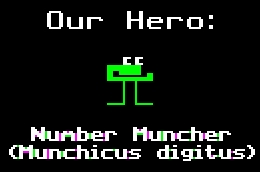
Reading books is in vogue once again. Articles abound about the reading lists and reading habits of this or that entrepreneur or self-help guru, scientist, world leader, or online personality. But not all of us have the time and/or attention to plow through as many books as the many internet authors and entrepreneurs we read about.
For me, a person with a naturally short attention span, little available time, and an insatiably curious mind, this has stirred up a lot of feelings of inadequacy. I can barely finish the book I took out from the library 3 weeks ago, let alone sit and consume 10 books this month to keep up with whoever the trending thought leader on Flipboard is this week.
So for those of us with limited time, and limited attention, the name of the game is to saturate the limited time with as much attention as possible. What I have found most effective in doing this is enthusiasm. Namely, keep that enthusiasm and excitement of delving into a new subject as high as possible for as long as possible.
For me, the key to this is movement. Keep moving from one source to another, from one area of a subject to another, etc. Move around and gather what is useful, stockpile it, and venture out again.
That method is all about 3 things:
- capturing interests
- short bursts of targeted research
- A key principle I call “Vocab Munching”
Capture, Capture, Capture!
For those of us who don’t get long blocks of time or attention to just sit and read books, the name of the game is all about leveraging the intensity of our curiosity. That means that when something piques our interest, we need to capture it for later use, and build up a store of things we’re interested in really looking into.
This means to simply record every idea or notion that piques your interest, as it happens.
There is no better quote about this than from Mr. GTD himself, David Allen:
Most people have (or could have) many more of these kinds of thoughts than they realize, during the course of any 24-hour period. Most people don’t get value from many of them, because they lack both the habit and the tools to collect those thoughts when they occur. If they aren’t captured, they are useless, and even worse can add to the gnawing sense of anxiety most people feel about things…
Keep a list that’s easily accessible, and use it to springboard your explorations into learning about stuff. Cross off anything you’re no longer enthused about.
The name of the game is your enthusiasm; if you’re not eager to find out about something, you’re less likely to use your limited free time to do focused and interesting learning about it. So keep your list loaded with only things that excite you when you see them on the list.
Read and research in short bursts
I’m not going to pretend like my attention-span problem doesn’t have anything to do with how much information is out there literally at my fingertips. Nearly every time I’m reading a book, I stumble across something that isn’t further explained in the book, but my overexcited mind wants to know more about now!
Sure, it probably helps to better control and suppress that urge, so you can finish reading books without interrupting yourself. But at the same time, while you’re succumbing to that urge, allow it to create value for you, and when you find yourself doing a very quick deep-dive on something you came across in a book, record what you find!
Use Instapaper, Evernote, or your preferred capture tool for internet content, and save things you skip around to during a so-called “interruption”. At worst, you have saved yourself some content that will be useful later. At best, you’ve started a new research bundle that may fuel later endeavors!
Be a Vocab Muncher
This is the most important piece in leveraging a short attention span and limited time to more effectively learn.
Back when I was in grammar school, on our schools one (singular) Apple II computer, we had a game called Number Munchers.

It was sort of like a Pac-Man game, but the object was to “munch” certain numbers that met predetermined criteria, and “munch” as many of them as you could. My suggestion for you, dear reader, is to learn in short bursts by becoming a vocab muncher.
Get into a new subject matter quickly, and keep enthusiasm at a high level by learning as many new pieces of previously unknown vocabulary in that subject as you can.
As passé as it may sound, Wikipedia is usually a great place to start. It provides overviews of subjects with terminology you can use to fuel your subject matter exploration. It also provides links to primary sources where you can do deep dives, or look at surveys of particular subjects.
- Start at the Wikipedia page for some subject you’re interested in.
- Look for any hyperlinked words (usually in the top paragraphs of the entry) that you don’t know, and that seem like terms of art for that subject matter.
- Click on those hyperlinked terms and get a sense for what they mean, and how they’re involved in the essence of the subject you’re learning about.
- Record your brief one-sentence understanding of the vocab word under the heading of the subject you’re learning about
- Repeat as many times as you can until your available time or attention expires
This exercise does two things: (1) it keeps the momentum and enthusiasm high (2) it provides a great basis for future learning about a subject. You get to feel like you’ve learned some things rather quickly about a subject, and you get to better understand what might be left for you to learn. It makes it easier to pick that subject back up later, and learn more about it.
In Conclusion
Remember, the name of the game here is keeping enthusiasm high, in order to saturate limited time with as much attention as possible. The best way that I have found to do that is to capture all the ideas that pique my interest and learn about them by “vocab munching”.
I hope it works for you.
Did you find value in this piece? Consider subscribing to my weekly newsletter — Woolgathering. It’s one email per week, with great ideas to add value to your life and work.
